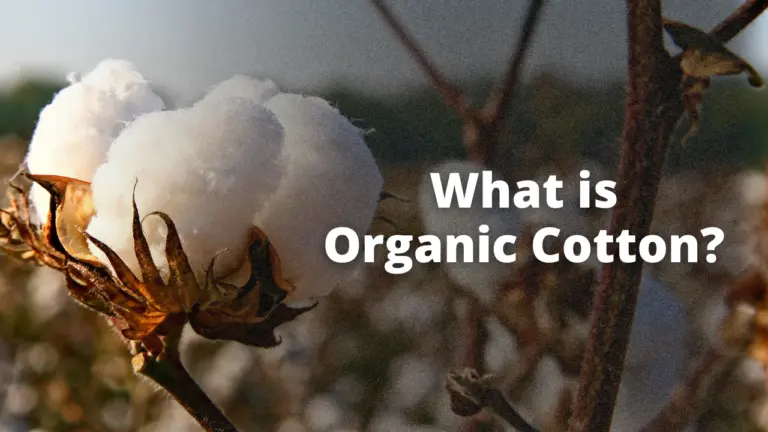- Home
- About
- Products
Single Fill Duck
Army Duck Fabric
Numbered Duck
- 200 GSM Cotton Polyester Mix Canvas Fabric
- 220 GSM Cotton Polyester Mix Canvas Fabric
- 290 GSM Cotton Polyester Mix Canvas Fabric
- 295 GSM Cotton Polyester Mix Canvas Fabric
- 315 GSM Cotton Polyester Mix Canvas Fabric
- 375 GSM Cotton Polyester Mix Canvas Fabric
- 390 GSM Cotton Polyester Mix Canvas Fabric
- 470 GSM Cotton Polyester Mix Canvas Fabric
- Eco Weav
- Re Weav
- Certificates
- Contact Us

Organic cotton production
It’s no surprise that organic cotton is becoming increasingly popular. Sustainable fabric has come into its own in an age of fast fashion. Is organic cotton, however, a better option than cotton products that do not bear the organic label? Is it better for the environment and the skin of your family?
Conventional cotton is certainly more eco-friendly than synthetic fibres as a biodegradable natural fabric, but organic cotton fabric takes sustainability a step further. Cotton that is grown and processed organically reduces landfill waste and pollution. Organic cotton accounts for less than 1% of global cotton, but it has become increasingly popular as a bedding, clothing, and bathroom material in recent years.
Here’s everything you need to know about organic cotton to decide whether you should look for it in bedding, bath, clothing, and home products.
What is Organic Cotton?
Organic cotton is cotton grown without the use of synthetic pesticides, fertilizers, or other toxic chemicals. Organic cotton plants cannot legally be derived from genetically engineered seeds, and strict regulations govern how cotton must be grown to be certified organic.
The Federal Trade Commission (FTC) and the United States Department of Agriculture (USDA) oversee organic certification in the United States. Other third-party certifications address the transformation of organic fibre into organic textiles. The Oeko-Tex Standard 100 and the Global Organic Textile Standard are two of the most important (GOTS)
However, the term “organic” may not go far enough. When products are marketed as organic cotton textiles or fabrics, the term usually refers only to the method in which the cotton was grown. Your products may still be treated with hazardous chemicals such as bleach and formaldehyde, or dyed with toxic inks containing heavy metals. That is why it is critical to look for Oeko-Tex and GOTS certification.
Read more About the – Global Recycled Standard
Why it’s better for the environment?
While we are all aware of the benefits of organic food, organic textile materials may be unfamiliar to some.
Fortunately, whether it’s food or fabric, the organic label means the same thing: no chemicals, genetically modified organisms (GMOs), or other unnatural man-made creations.
According to a report published by the UK charity the Soil Association, switching to organic cotton could reduce the global warming impact of cotton production by 46 percent when compared to non-organic cotton.
1. No Chemicals Are Used
Harmful chemicals? We’d all prefer to avoid them. Despite this, over $3 billion in toxic chemicals are sprayed onto non-organic cotton crops each year, making conventional cotton the world’s most pesticide-dependent crop.
These chemicals have a significant environmental impact. Cotton crop runoff pollutes lakes and rivers, contaminating both animal and human water sources. Not to mention the devastation caused to wildlife. Toxic pesticides are estimated to kill 67 million birds worldwide each year.
Organic cotton uses no chemicals and instead follows a more natural process. This includes processes such as introducing beneficial insects to eat pests from crops, thereby eliminating the need for pesticides – a win-win situation!
2. Less Water is Used
Water is an obvious global resource that must be protected. It’s especially critical given that two-thirds of the world’s population could face water scarcity by 2025.
A staggering 2,700 litres of water are required to harvest enough conventionally produced cotton to make a single t-shirt. Because the chemicals sprayed on crops contaminate the water, it cannot be reused, adding to the waste.
Meanwhile, organic cotton can produce the same t-shirt with 91% less water! This is because the majority of the water used in organic cotton production comes from rain, relieving pressure on local water supplies.
Lower levels of pollution in the earth also help the soil retain moisture, creating ideal conditions for a perfect cotton crop.
3. There’s less impact on the land
Organic cotton production focuses on maintaining the quality of the land used to grow crops.
It relies on natural and traditional farming methods such as pulling weeds rather than chemically spraying them, rotating crops to avoid soil erosion, and using high-quality compost to keep the land healthy. Cotton grows better when the environment is healthy.
And because these organic cotton processes use less fuel and emit fewer greenhouse gases, they have a significantly lower carbon footprint.
4. It is a more beneficial for people of production
Remember those noxious chemicals we discussed? The bleaches and chlorines used in traditional cotton production, on the other hand, can cause serious illnesses in humans. Every year, thousands of cotton workers are poisoned by pesticides, resulting in 200,000 deaths.
To be certified as organic cotton, production companies must ensure the safety of the environment, its people, and the communities surrounding a field. Child labour is prohibited, all workers are paid a living wage, and organic cotton farmers are not exposed to hazardous chemicals.
Organic processes benefit more than just workers. According to studies, organic cotton clothing causes fewer allergic reactions than conventional cotton clothing, which is great news for everyone’s health!
Also, Check the other Products – Cotton Canvas fabric and organic cotton fabric

